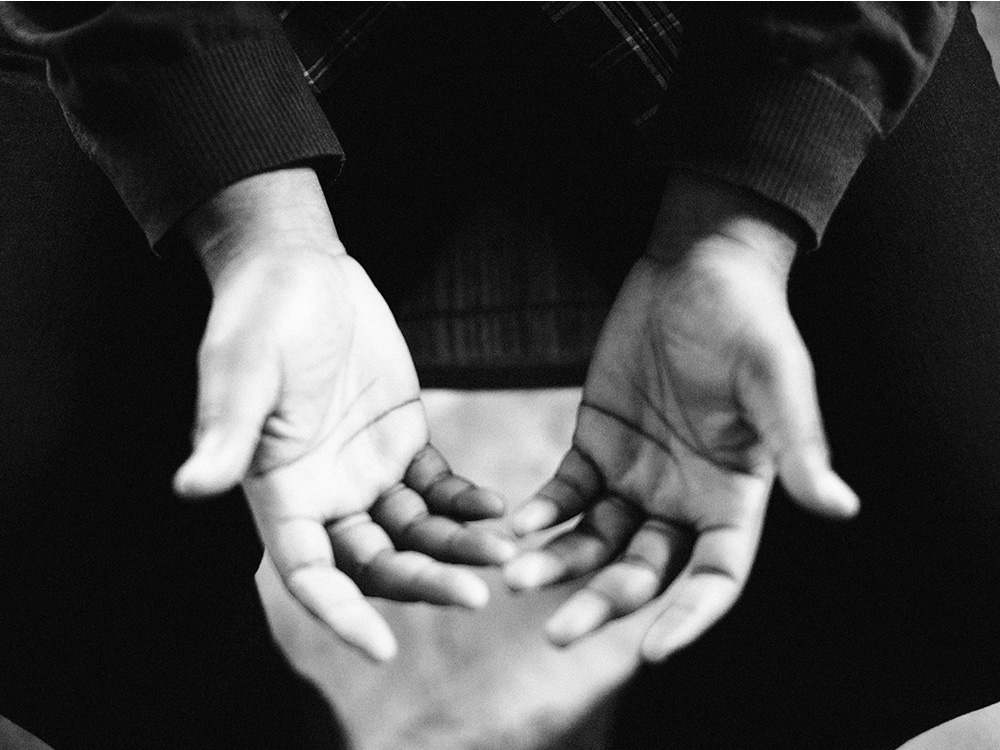How Godly Men Deal with Anger

Introduction
Can you remember the last thing that made you angry? Maybe someone cut you off in traffic or failed to give you proper credit for your work. Or maybe it was something bigger, yet another disappointment in a relationship with a long history of hurt. We can all think of some moment when we lost our temper and hurt someone we love. Thankfully, there is no new emotion under the sun, and the Bible has some wise advice for what to do with anger.
What does the Bible say about anger?
Anger can oppose righteousness
While anger may make us feel justified in hasty and harsh reactions, the opposite is often true. In his letter, James writes,
Know this, my beloved brothers: let every person be quick to hear, slow to speak, slow to anger; for the anger of man does not produce the righteousness of God. (1:19-20, NKJV).
It’s not difficult to see how that can happen. Where the Bible encourages patience—ie., listening to others, speaking wisely, and acting justly toward others—anger clouds our judgment.
In fact, a 2018 paper surveying studies on anger found that actually anger reduces our ability to empathize with others: “[A]nger promotes egocentrism. When people experience anger, they tend to anchor on their own perspective and struggle to adopt another vantage point,” (Yip and Schweitzer, p. 37). That’s right: anger can make us dumber.
Living according to the Spirit calls for something different than upholding our pride.
Anger can worsen conflict
It’s common knowledge that you should never put water on a grease fire. Instead of putting the fire out, the water’s natural avoidance of oils causes it to sink to the source of the heat and then explode outward, splashing the space with burning liquids and potentially spreading the fire. The same advice could be given about anger and interpersonal conflict.
Proverbs 15:18 tells us that a “hot-tempered person stirs up conflict, but the one who is patient calms a quarrel.” Flash-paper skin means we’re just as likely as that grease fire to blow up, acting without consideration for the other people in the situation.
Is anger a sin?
Anger is a sin when it stems from the wrong source and results in sinful thoughts and behavior. In Ephesians 4:26-27, Paul writes, “Be angry and do not sin; do not let the sun go down on your anger, and give no opportunity to the devil.” (ESV)
Breaking these verses down, we learn a few things:
- Anger is not always the same thing as sinning.
- However, feeling anger does not excuse us from striving to live in a right relationship with God and others.
- In fact, we should be extra careful to avoid acting or speaking unjustly in our anger.
Okay, so anger is often but not always a sin. What does anger without sin look like? How do you know if your anger is sin? When discussing righteous anger, it’s good to start with the source of righteousness: God.
The only source of righteous anger
Imagine, for a moment, that you are a being of infinite love, knowledge, and power. You’re excited about this new project called humanity. But while you created humanity to reflect your goodness and creativity, people keep choosing and perpetuating pain and brokenness. Not only this, but they inflict the worst of themselves on the most vulnerable among them. That disconnect between perfect love and imperfect people is the only source of righteous anger.
When we find ourselves outraged by someone bullying our children, the death of a loved one, or injustice committed against the powerless, we acknowledge with God the “not yet” of the already/not-yet world we live in. We live in a time where already Jesus’ sacrifice has repaired our relationship with God but not yet have all things been made right.
Those feelings of anger and grief for a world in sin are not pleasant, but they are holy. Ignoring or repressing our own feelings about injustice and death will not make things right.
Before we get too much farther here, though, it’s important to put some safeguards on our definition of righteous anger. For this, we can look to Jesus’ example.
What did Jesus' anger look like?
If you’ve sat in the pews during a sermon on anger, you’ve probably heard the story of Jesus overturning tables in the temple. This story is such a big deal that all four gospels dedicate space to it.
For our purposes, let’s take a look at John’s account in chapter 2. We learn that it was the time of year for the Jewish Passover, and Jesus entered the temple where he had been teaching regularly. But when he sees the crowded stalls of merchants and money changers, Jesus does something surprising:
And making a whip of cords, he drove them all out of the temple, with the sheep and oxen. And he poured out the coins of the money-changers and overturned their tables. And he told those who sold the pigeons, “Take these things away; do not make my Father’s house a house of trade.” (John 2:15-16, ESV).
What are we meant to do with this angry Jesus? Something about this situation turned the man who advises us to “turn the other cheek” into a man who flips tables!
In an interview for Christianity Today, Christian counselor Brad Hambrick notes something crucial from Matthew’s account: “[After Jesus is finished turning over the tables, it says, ‘The blind and the lame came to him.’ … [I]n Jesus’ most expressive moment of anger, the most vulnerable felt protected and attracted. Not scared.”
Does your anger help the vulnerable people in your life feel protected and drawn to God’s goodness?
This might seem like a strange and near impossible thing to achieve, but God’s priorities lay with the downtrodden, and Jesus’ actions model for us what it looks like to remain unified with His Father’s purposes and priorities.
This can serve as a test for whether our anger is righteous: does my anger keep me aligned with the priorities and methods of God? The temple at Passover was the destination for many travelers to come and worship. Taking advantage of foreigners and the poor for profit both added unnecessary barriers to worshiping God and turned a space dedicated to God into a space that served corrupt people. Righteous anger will never find us opposed to God’s purposes and priorities.
How do I control my anger?
While anger doesn’t always have a quick fix, there are a few things we can do to check ourselves before things get out of hand.
Before things get dire, find other ways to let off steam.
Like a kettle on the edge of boiling, anger comes from built up pressure. Oftentimes it’s not one thing that sets us off but a series of small grievances that have stacked into a heap of bitterness and rage.
When you face frustrations, practice acknowledging and expressing them. As strange as it sounds, simply admitting to yourself Ugh! I’m angry! (in a silly voice even) can really take the wind out of the rage sails. Just be sure not to ruminate. If you’re still feeling the heat, maybe it’s time to move to our next option:
Remember to breathe (and move).
Emotions aren’t just in our head, and releasing tension in our bodies can help reduce the intensity of anger in our bodies and our minds— or at least help us focus more clearly on the problem at hand.
I’m especially fond of bathroom shadow boxing or a spontaneous stair-run, but any sort of physical movement practiced in a way that does not harm or intimidate others is a good way to turn that excess angry energy loose.
If you’re not in a space where spontaneous high-knee reps are appropriate, try a 4-7-8 breathing pattern: breathe in for 4 seconds, hold for 7, and release your breath for 8. Give yourself 10 of these breaths before attempting to address the problem.
Talk to God about it.
One bible example of healthy emotional expression we can look to is the Psalms. Psalms may bring to mind the tranquility of Psalm 23 or the earnest contrition of Psalm 51. But when’s the last time you wailed alongside the Psalmist just four chapters later in Psalm 55?
But you, O God, will cast them down / into the pit of destruction; / men of blood and treachery / shall not live out half their days. / But I will trust in you.
Passages like Psalm 55, 79, and 109 reveal deep anguish, fear, and anger—including that familiar desire for control. The Psalmist calls down what might be understood as curses on his enemies!
But as with the example of Jesus’ anger in the temple, there’s something more than meets the eye here. Cursing your enemies is not a godly anger management plan. Dealing rightly with anger is far less about seizing control and far more about giving it up.
Leave vengeance to God.
Just the Psalmist, once we’ve expressed our honest feelings to God, the next step is to leave space for God to act. Notice, in that vivid description provided in Psalm 55, the author calls on God for justice rather than making his own moves.
This is not an invitation to shirk our responsibility to care for others and embody God’s goodness; it’s a reminder to know where our lane ends. In Romans 12, Paul writes,
Repay no one evil for evil, but give thought to do what is honorable in the sight of all. If possible, so far as it depends on you, live peaceably with all. Beloved, never avenge yourselves, but leave it to the wrath of God, for it is written, “Vengeance is mine, I will repay, says the Lord.”
While we may feel the hurt and bear some consequences of sin (our own and others’), it is ultimately God who will bring justice, and thank goodness! We can trust that His ways will be right, and in the meantime, we are relieved of the burden of bitterness—so long as we are willing to give it up.
Overcome evil with good.
The final two verses of Romans 12 are a simple yet difficult task:
To the contrary, “if your enemy is hungry, feed him; if he is thirsty, give him something to drink; for by so doing you will heap burning coals on his head.” Do not be overcome by evil, but overcome evil with good. Do not be overcome by evil, but overcome evil with good. (Romans 12:20-21, ESV)
Once we’ve acknowledged, expressed, and turned over our anger to God, the only thing left is to live free. Ephesians 4:31-32 reminds us, in Christ, we are emboldened to act from the grace we ourselves have received—that means giving it freely to others.
Lean on your community.
One final thing that can help us keep a perspective of humility and patience is to maintain relationships with other believers. In the Church (the big “C” means we’re talking about the global community of all believers) we find abundance to shore up our own scarcity. In some cases, that’s an abundance of perspective when we’re stuck in our own feelings.
The Redeemed small groups were created to be a supportive, non-judgmental community for men looking to weather the ups and downs of life with strength and grace.
Conclusion
The causes and symptoms of anger are many and varied, but the godly approach is grounded in several profound and difficult truths:
- Anger is a problem when it causes us to think and behave contrary to God’s way.
- Anger can oppose righteousness, worsen conflict, and prevent us from fairly judging circumstances.
- We can test to see if our anger is righteous by what it drives us to want to do. Does it align us with God’s purposes and priorities?
- Try to deal with anger by expressing it before it explodes, calming your body while you calm your mind, talking to God about it, leaving vengeance to God, and overcoming evil with good!
Reflect
- Does your anger tend to drive you to seek God’s purposes and priorities?
- Who in your life do you feel comfortable sharing your frustrations with? If you don’t currently feel comfortable sharing with anyone, try to take that first step to make a connection in this next week, maybe at your church or with a friend you haven’t talked with in awhile.
- How can you be a support to others in their moments of anger? What do you think it could look like to sit with someone else in their trials and point them back to God?
Connect with The Redeemed Community
If you’re inspired to explore the transformative power of spiritual freedom and would like to journey alongside like-minded believers, consider joining one of The Redeemed’s small groups. Whether you prefer meeting in person or connecting online, our community is here to support and grow with you. Join us and discover how surrendering together can lead us into greater freedom.
More Posts From The Redeemed
The Redeemed offers articles and resources on spiritual growth, relationships, family, overcoming trauma and loss, and more. Providing guidance for incorporating Biblical teachings into our everyday lives.

Breaking Free From Performance and Shame Through Your Identity in Christ
Maybe you’ve heard the name Frank Abagnale—the real-life con artist who became famous in the film Catch Me If You Can. Before the age of 21, he successfully convinced the world that he was, among other things, an airline pilot, doctor, and lawyer. Each identity came with confidence, credentials, and applause. And for a while, the masks worked—Abagnale fooled many people. However, it eventually caught up with him. Every false identity he wore led him deeper into consequence, fear, and exposure.

Prayer and Fasting in Community Strengthens Christian Men
Who are you becoming in Christ?
Prayer and fasting are deeply personal practices, but they are not meant to be practiced only in isolation. When they are shared in community, they become places of encouragement, accountability, and deeper formation. As you discuss the following questions, resist the urge to perform or fix. Instead, listen well, speak honestly, and encourage one another. Growth begins with truth, and God often uses community for the forming work he wants to accomplish in us.

The Discipline of Self-Denial: Why Christian Men Need Prayer and Fasting
We live in a culture obsessed with self-indulgence. From the moment we wake up, we’re told we deserve more: more comfort, more success, more experiences, more stuff. Bigger is better. Newer is necessary. If something feels hard, inconvenient, or uncomfortable, we’re encouraged to avoid it or upgrade out of it. The message is constant and convincing: you owe it to yourself.




